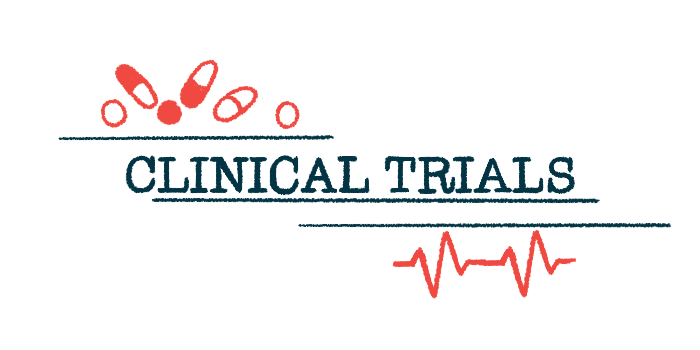Phase 3 Aspire trial of gene therapy GTX-102 doses 1st patient
New trial, Aurora, to test GTX-102 in other Angelman genotypes, age groups
Written by |

The first patient has been dosed in a Phase 3 trial evaluating the safety and efficacy of GTX-102, Ultragenyx Pharmaceutical’s experimental gene therapy for Angelman syndrome.
The global Aspire study (NCT06617429) is expected to enroll about 120 children and adolescents, ages 4 to 17, with Angelman caused by a complete loss of the maternal UBE3A gene. It is recruiting patients at sites in the U.S., with several other sites planning to open in the U.S., Canada, Australia, Japan, and some European countries.
The ongoing trial, scheduled for completion in 2027, is designated as pivotal, indicating that positive results could serve as the foundation for regulatory applications seeking GTX-102’s approval. Furthermore, the company intends to launch another trial, dubbed Aurora, later this year to assess the treatment’s efficacy in patients from other age groups and with different genotypes (an individual’s unique genetic makeup).
Start of Phase 3 Aspire study ‘an important step forward’
“Initiation of patient dosing in our Phase 3 Aspire study represents an important step forward in the development of an effective, and much needed, treatment for patients and families affected by Angelman syndrome,” Eric Crombez, MD, Ultragenyx’s chief medical officer, said in a press release.
Each individual inherits two copies of every gene, one from each biological parent. In neurons, or nerve cells, within the central nervous system (comprising the brain and spinal cord), the UBE3A gene copy inherited from the father is usually inactive.
Angelman syndrome is caused by a mutated or missing UBE3A gene copy inherited from the mother. This leads to symptoms like developmental delay, motor and communication impairments, behavioral issues, and disturbed sleep.
GTX-102 is an antisense oligonucleotide (short strings of genetic material) designed to inhibit a molecule, called UBE3A antisense transcript, to prevent silencing of the paternal copy of the UBE3A gene. The treatment is given through direct injection into the spinal canal.
Results from the Phase 1/2 KIK-AS trial (NCT04259281), which mainly enrolled patients in whom the maternal UBE3A gene copy is entirely missing, demonstrated the treatment had an acceptable safety profile, with no serious adverse events.
Moreover, participants experienced a clinically significant improvement in cognition, and in one or more domains of cognitive skills, communication, motor function, sleep, and behavior.
Aspire trial participants to receive GTX-102 or placebo for nearly 1 year
In the Aspire trial, participants will be randomly assigned to receive GTX-102 or a placebo for nearly one year (48 weeks).
In the active treatment group, participants will be given three monthly 8 mg doses of GTX-102 initially, followed by a maintenance period where the dosage will gradually increase up to a maximum of 14 mg administered every three months. After 48 weeks, patients in the placebo group can switch to GTX-102 treatment.
The trial’s main goal is to assess improvements in cognition using the Bayley-4 Cognition Raw Score. Secondary measures include the Multi-domain Responder Index to measure cognition, receptive communication, behavior, motor function, and sleep.
“The initiation of the Phase 3 Aspire study by Ultragenyx is a significant achievement and something the community should celebrate,” said Amanda Moore, chief executive officer at the Angelman Syndrome Foundation (ASF), and Ryan Fischer, chief operating officer at Foundation for Angelman Syndrome Therapeutics (FAST).
“As a united community, ASF and FAST work together to further awareness and treatment of Angelman syndrome and are excited by all the recent progress in research and drug development,” they added.







